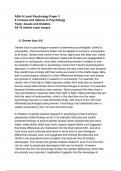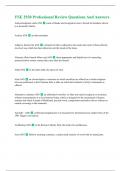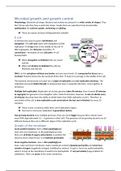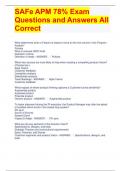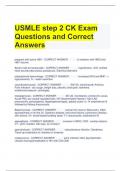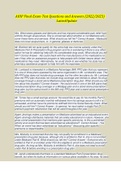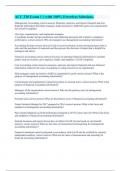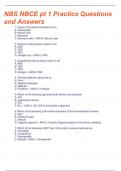Essay
A Level Psychology Issues and Debates Topic Essays
- Course
- Institution
This document contains all the possible Issues and Debates 16 marker essays that could come up on your Psychology Paper 1 exam for the AQA examboard. It can also be used for shorter answers, or just some general revision for the topic. Great for AO3, as it also contains counter criticisms and issue...
[Show more]
